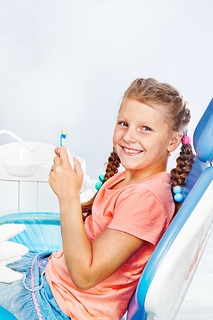July 9th, 2025

At All About Kids Dentistry, we have been creating beautiful smiles for years. Whether you or your family have visited Dr. Diane Colter and our team for a single visit or have been loyal patients throughout the years, we would love to hear your thoughts about your experience! In fact, we encourage you to leave a few words for us below or on our Facebook page!
We look forward to reading your feedback!
July 2nd, 2025

Dry mouth, also medically known as xerostomia, is the condition of not having enough saliva, or spit, to keep your mouth wet. There are many ways to keep dry mouth at bay, including:
- Brushing your teeth after every meal with a fluoride toothpaste
- Flossing every day after a meal
- Avoiding tobacco, as well as drinks containing alcohol or caffeine
- Avoiding dry foods, as well as foods containing high salt, acid, spice, or sugar levels
- Drinking water frequently or sucking on ice chips
- Using a humidifier at night
Please call our convenient Dallas dental office to learn more about dry mouth, or ask us during your next visit!
June 25th, 2025

As a patient at All About Kids Dentistry, your opinion matters! Dr. Diane Colter and our team love hearing what our patients think about our practice and the services we provide, and now we want to know, what do you think we should blog about?
Perhaps there’s a treatment you’ve always wanted to know about, or you’d like to learn about a specific way to improve your health and smile. Whatever your idea, we’d love to hear about it! You can let us know by posting here or on our Facebook page!
June 18th, 2025

Although using mouthwash is certainly not the equal of brushing and flossing, it does have benefits for your dental hygiene. If you use mouthwash regularly, you should find out which type is best suited for your needs. Here are some things to think about the next time you’re at the store.
The first item to weigh is why you want to use mouthwash. If the reason involves a high risk for cavities, you should focus on a mouthwash that contains fluoride. Make sure to double-check the label, because some mouthwashes do not necessarily include fluoride.
If you’re looking for a mouthwash to fight gingivitis, select an oral rinse with antibacterial properties. Make sure to read labels and avoid picking one that contains alcohol. Antibacterial mouthwash would also be best for a patient who has periodontal disease.
Another option is prescription mouthwash. These should be discussed with Dr. Diane Colter and/or your pharmacist in order to avoid negative side effects. Pay close attention to the directions regarding how much to use and for how long. Keep in mind that some brands may lose their effectiveness if you use them on an ongoing basis.
For children, you can find a mouthwash that changes the color of plaque on their teeth. This is a fun way to help them understand how well they are brushing, and what areas they need to focus on. It can even be a tool for adults who have trouble reaching certain areas of their mouth.
While mouthwash is generally considered as a safe means to improve your oral health, you need to keep certain things in mind. Avoid using any mouthwash that has alcohol in it. If you are using a strong one, it can reduce your sense of taste over time. Be wary of a mouthwash that claims it can loosen plaque; this is not accurate and can mislead consumers.
We hope these simple suggestions will help you the next time you’re at the store. Make sure you pick the right mouthwash to keep that healthy smile! Feel free to contact Dr. Diane Colter at our Dallas with any questions you may have.


 (972) 233-4439
(972) 233-4439 Dallas
Dallas Schedule Now
Schedule Now





 Website Powered by Sesame 24-7™
Website Powered by Sesame 24-7™